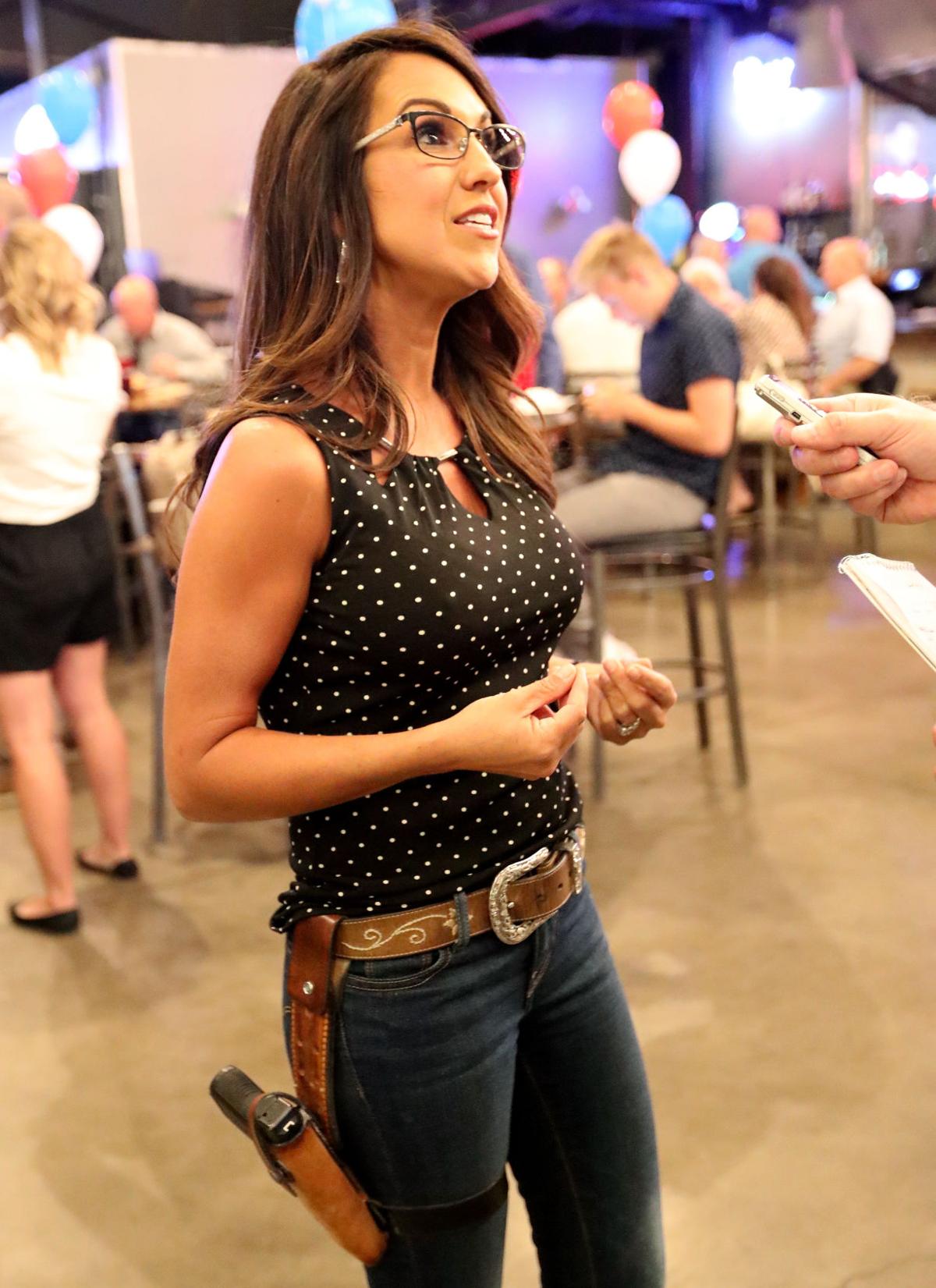Political discourse in the United States often brings forth moments of intense debate and public scrutiny, especially when high-profile figures are involved. Recently, a heated exchange between Lauren Boebert and Tim Walz has captured national attention, sparking discussions about political rhetoric and its implications. This encounter not only highlights the personalities and ideologies of these two politicians but also reflects broader themes within American politics.
The intersection of personal beliefs, policy decisions, and public image creates a complex landscape for political figures. In this context, Lauren Boebert's interactions with Tim Walz serve as a case study for understanding how modern political debates unfold. The following article delves into their recent clash, focusing on the so-called Detroit Quote that has become a focal point of discussion among observers and participants alike. By examining this event closely, we gain insights into the dynamics of contemporary political dialogue.
Lauren Boebert made headlines once again when she tweeted about Kamala Harris during her son Tyler Boebert's court appearance for charges related to car break-ins and property thefts. While sitting in the courtroom dressed in a yellow dress, Boebert took to social media to criticize both Kamala Harris and Minnesota Governor Tim Walz. Her tweet underscored her strong opinions even amidst personal family challenges. This action sparked further debate over her use of social platforms to voice political views under such circumstances.
Tyler Boebert’s legal proceedings brought significant media attention to his mother, Representative Lauren Boebert. As she supported him through his criminal theft case, her public statements continued to reflect her outspoken nature. Despite the sensitive nature of the situation involving her own child, Boebert maintained her characteristic approach to engaging with current events and political adversaries.
Boebert's Social Media Influence Amid Legal Challenges
Beyond the courtroom drama, Lauren Boebert engaged in a notable online exchange with Kid Rock following comments by Minnesota Governor Tim Walz regarding Elon Musk. When Walz criticized Musk, Kid Rock responded sharply, questioning Walz's policies and receiving backing from Boebert. This interaction highlighted how quickly political disagreements can escalate into viral conversations involving celebrities and public figures.
Such exchanges demonstrate the reach and impact of social media in shaping public perception and amplifying political messages. Both Boebert and Kid Rock utilized their platforms to counter what they perceived as unfair criticism, thereby strengthening alliances and reinforcing their respective bases. The incident illustrated the evolving role of social media in modern political communication.
In addition to direct engagements, Boebert also faced scrutiny over claims attributed to her concerning crime statistics in Detroit. Reports suggested she had incorrectly stated that Detroit held the highest murder rate in Minnesota, which drew criticism for spreading misinformation. This episode added another layer to the ongoing narrative surrounding her accuracy and credibility in public statements.
Accuracy vs. Rhetoric: Analyzing Political Statements
While some accusations against Lauren Boebert lacked substantial proof, others pointed towards potential lapses in fact-checking or deliberate attempts to mislead audiences. For instance, allegations that she claimed Detroit had the highest murder rate 'in Minnesota' were debunked due to lack of evidence supporting such a statement. Such incidents raise questions about the responsibility of politicians to ensure factual integrity in their communications.
Tim Walz himself navigated controversies surrounding his administration's handling of various issues, including education and healthcare reforms. His admission that Donald Trump's influence could resonate with certain demographics showcased his willingness to engage constructively with differing perspectives. Meanwhile, Chuck Schumer addressed growing concerns about antisemitism in America, highlighting bipartisan efforts needed to combat prejudice effectively.
This juxtaposition of leaders addressing different societal challenges underscores the multifaceted nature of leadership today. It calls attention to the importance of balancing robust advocacy with thoughtful consideration of facts and opposing viewpoints.
Media's Role in Shaping Public Discourse
Coverage of these events by major news outlets like Fox News played a crucial role in informing the public and influencing opinion formation. Through comprehensive analyses, commentaries, and interviews featuring key players, media organizations help shape narratives around critical issues affecting communities nationwide. They provide platforms where diverse voices can be heard, fostering informed discussions essential for democratic processes.
As seen with SJSU Spartans football—another institution celebrated for its passion and performance—the ability to unite people behind shared goals remains vital across all sectors of society. Similarly, effective political communication must inspire unity while respecting individual differences and promoting mutual understanding.
In conclusion, the interplay between Lauren Boebert, Tim Walz, and other prominent figures exemplifies the complexities inherent in today's political environment. By critically evaluating instances of controversy and collaboration, we can better appreciate the nuances driving our nation's ongoing dialogue on governance and civic engagement.

